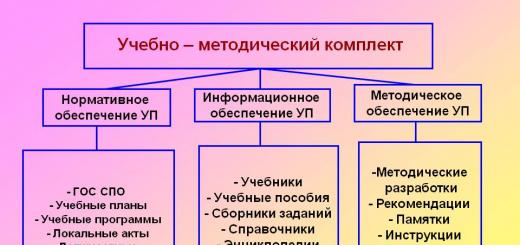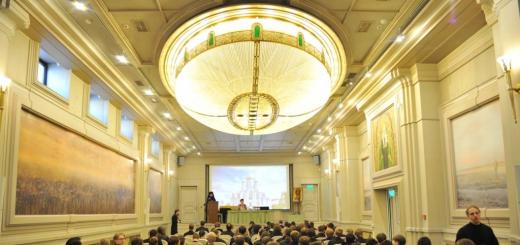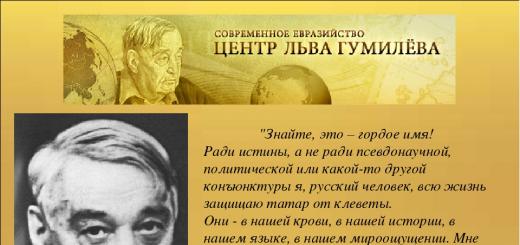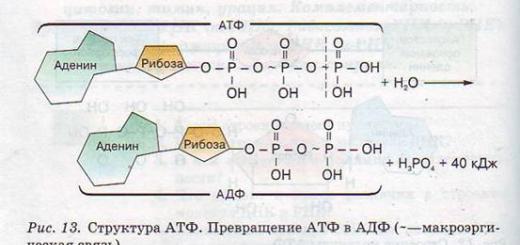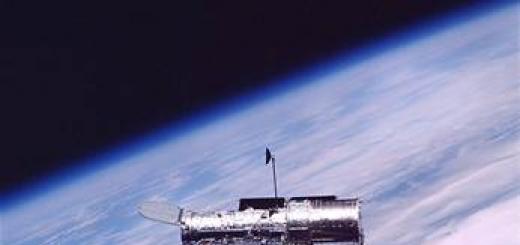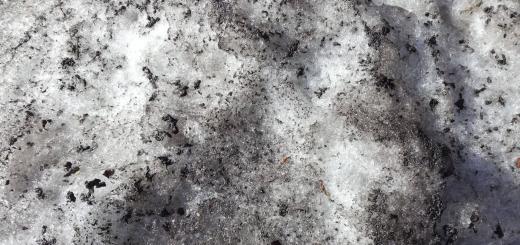Russia and its inhabitants have always been peaceful and hospitable towards other nations. However, they constantly had to wage war throughout their existence. These were not always defensive wars. During the formation of the state, Russia had to, among other things, conquer lands for itself. But still, basically the country had to constantly defend itself from numerous enemies.
When talking about the great commanders of Russia, it is very difficult to single out the most significant of them.

Great commanders of Russia
How many of them have existed over the centuries-old history of the country? Most likely, more than one thousand. Someone constantly fought for the country, but time has not preserved their names. And someone accomplished one great feat and became famous throughout the centuries. And there were a huge number of wonderful and brave princes, governors and officers, whose only feat went unnoticed.
The great commanders of Russia are a very broad topic, so we can only briefly talk about the most famous of them. If we start from the period of formation of the Russian state, then the most prominent personality of that time was the defender of Rus' from the attacks of the Pechenegs, Polovtsians and Khazars, Prince Svyatoslav, who lived in the 10th century. He saw danger in the weak borders of the state and constantly strengthened them, spending almost all his time on campaigns. Svyatoslav died like a true warrior - in battle.
- Prince Oleg (Prophetic)

Prophetic Oleg (879 - 912) Main battles: Campaign against Byzantium, Eastern campaigns. The semi-legendary Prophetic Oleg is the prince of Novgorod (from 879) and Kiev (from 882), the unifier of Ancient Rus'. He significantly expanded its borders, dealt the first blow to the Khazar Kaganate and concluded treaties with the Greeks that were beneficial for Rus'. Pushkin wrote about him: “Your name is glorified by victory: Your shield is on the gates of Constantinople.”
- Prince Svyatoslav

Prince Svyatoslav (942–972) Wars: Khazar campaign, Bulgarian campaigns, war with Byzantium Karamzin called Prince Svyatoslav “Russian Macedonian”, historian Grushevsky - “Cossack on the throne”. Svyatoslav was the first to make an active attempt at extensive land expansion. He successfully fought with the Khazars and Bulgarians, but the campaign against Byzantium ended in an unfavorable truce for Svyatoslav. He died in a battle with the Pechenegs. Svyatoslav is a cult figure. His famous “I’m coming to you” is still quoted today.
- Monomakh Vladimir Vsevolodovich

- Nevsky Alexander Yaroslavich

Alexander Nevsky (1220–1263) Main battles: Battle of the Neva, war with the Lithuanians, Battle of the Ice. Even if you don’t remember the famous Battle of the Ice and the Battle of the Neva, Alexander Nevsky was an extremely successful commander. He made successful campaigns against German, Swedish and Lithuanian feudal lords. In particular, in 1245, with the Novgorod army, Alexander defeated the Lithuanian prince Mindovg, who attacked Torzhok and Bezhetsk. Having released the Novgorodians, Alexander, with the help of his squad, pursued the remnants of the Lithuanian army, during which he defeated another Lithuanian detachment near Usvyat. In total, judging by the sources that have reached us, Alexander Nevsky conducted 12 military operations and did not lose in any of them.
Perhaps the most famous commander of Russia, about whom almost everyone knows, is Prince Alexander Nevsky, the defender of Rus' from the Swedish and German knights. He lived in the 13th century, during a turbulent time of the active spread of the Livonian Order to the Baltic lands neighboring Novgorod. The conflict with the knights was very undesirable and dangerous for Rus', since it was not only about the seizure of territory, but also about the issue of faith. Rus' was Christian, and the knights were Catholics. In the summer of 1240, 55 Swedish ships landed on the banks of the Neva. Prince Alexander secretly arrived at their camp site and on July 15 unexpectedly attacked them. The Swedes were defeated, and the prince received a new name - Nevsky. The second battle with foreign invaders took place in the winter of 1242. In order to finally expel the enemy from the Novgorod land, Alexander Nevsky set out on a campaign against the Livonian Order. To meet the enemy, the prince chose a narrow isthmus between two lakes. And this battle was successfully won.
- Donskoy Dmitry Ivanovich

Dmitry Donskoy (1350–1389) Wars and battles: War with Lithuania, war with Mamai and Tokhtomysh Dmitry Ivanovich was nicknamed “Don” for his victory in the Battle of Kulikovo. Despite all the contradictory assessments of this battle and the fact that the period of yoke continued for almost 200 years, Dmitry Donskoy is deservedly considered one of the main defenders of the Russian land. Sergius of Radonezh himself blessed him for the battle.
It is impossible to imagine the brilliant galaxy of great Russian commanders without Prince Dimitri Ivanovich (Donskoy), the first Russian commander to defeat the Horde army. He was the first to transfer his throne to his son, without asking permission from the Khan of the Golden Horde.
The famous Kulikovo Massacre, the main feat of the Great Moscow Prince Dmitry, took place on September 8, 1380. The prince himself fought in simple armor in the vanguard, which was completely destroyed by the Tatars. But the prince, pinned down by a tree, survived. Well-ordered troops and the help of allies helped defeat the forces of the Horde, led by Khan Mamai.
- Ermak Timofeevich

Ermak (? -1585) Merits: Conquest of Siberia. Ermak Timofeevich is a semi-legendary character. We do not even know for sure the date of his birth, but this does not in any way diminish his merits. It is Ermak who is considered the “conqueror of Siberia.” He did this almost of his own free will - Grozny wanted to bring him back “under pain of great disgrace” and use him “to protect the Perm region.” When the king wrote the decree, Ermak had already conquered the capital of Kuchum.
- Ivan IV (Grozny)

- Pozharsky Dmitry Mikhailovich

Pozharsky Dmitry Mikhailovich is another famous commander who led the struggle of the Russian people in the Time of Troubles against the Polish invaders. He participated in the first and second people's militia and led the liberation of Moscow from the Polish garrison. He also proposed choosing the last heir from the Rurik family, Mikhail Fedorovich Romanov, as king.
- Peter I (the Great)

The 18th century opens with the great Tsar and commander Peter I. He preferred not to rely on the forces of others and always led his army himself. Even in early childhood, Peter began to engage in military training, organizing fights with village boys in a small fortress built for him. He completely built the Russian fleet and organized a new regular army. Peter I fought with the Ottoman Khanate and won the Northern War, allowing Russian ships to enter the Baltic Sea.
- Suvorov Alexander Vasilievich

- Pugachev Emelyan Ivanovich

- Ushakov Fedor Fedorovich

Fyodor Ushakov (1744–1817) Main battles: Battle of Fidonisi, Battle of Tendra (1790), Battle of Kerch (1790), Battle of Kaliakria (1791), Siege of Corfu (1798, assault: February 18-20, 1799). Fyodor Ushakov is a famous Russian commander who never knew defeat. Ushakov did not lose a single ship in battles, not a single one of his subordinates was captured. In 2001, the Russian Orthodox Church canonized Theodore Ushakov as a righteous warrior.
- Kutuzov Mikhail Illarionovich

Major wars and battles: Storm of Izmail, Battle of Austerlitz, Patriotic War of 1812: Battle of Borodino. Mikhail Kutuzov is a famous commander. When he distinguished himself in the Russian-Turkish war, Catherine II said: “Kutuzov must be protected. He will be a great general for me." Kutuzov was wounded twice in the head. Both wounds were considered fatal at that time, but Mikhail Illarionovich survived. In the Patriotic War, having assumed command, he retained the tactics of Barclay de Tolly and continued to retreat until he decided to fight a general battle - the only one in the entire war. As a result, the Battle of Borodino, despite the ambiguity of the results, became one of the largest and bloodiest in the entire 19th century. More than 300 thousand people took part in it on both sides, and almost a third of this number were wounded or killed.
Russia spent most of its history at war. The victories of the Russian army were ensured by both ordinary soldiers and famous commanders, whose experience and thinking are comparable to genius.
Disagree1 Agree
Main battles: Battle of Kinburn, Focsani, Rymnik, Assault on Izmail, Assault on Prague.
Suvorov is a brilliant commander, one of the most beloved by the Russian people. Despite the fact that his combat training system was based on the strictest discipline, the soldiers loved Suvorov. He even became a hero of Russian folklore. Suvorov himself also left behind the book “The Science of Victory.” It is written in simple language and has already been divided into quotes.
“Save a bullet for three days, and sometimes for an entire campaign, when there is nowhere to take it. Shoot rarely, but accurately, with a bayonet firmly. The bullet will be damaged, but the bayonet will not be damaged. The bullet is a fool, but the bayonet is great! If only once! Throw the infidel with the bayonet! - dead on a bayonet, scratching his neck with a saber. Saber on the neck - step back, strike again! If there is another, if there is a third! The hero will stab half a dozen, but I’ve seen more.”
Disagree2 Agree
Barclay de Tolly (1761–1818)
Battles and battles: Assault on Ochakov, Assault on Prague, Battle of Pultusk, Battle of Preussisch-Eylau, Battle of Smolensk, Battle of Borodino, Siege of Thorn, Battle of Bautzen, Battle of Dresden, Battle of Kulm, Battle of Leipzig, Battle of La Rothiere , Battle of Arcy-sur-Aube, Battle of Fer-Champenoise, Capture of Paris.
Barclay de Tolly is the most underrated brilliant commander, the creator of the “scorched earth” tactics. As commander of the Russian army, he had to retreat during the first stage of the War of 1812, after which he was replaced by Kutuzov. The idea of leaving Moscow was also proposed by de Tolly. Pushkin wrote about him:
And you, the unrecognized, forgotten Hero of the occasion, rested - and at the hour of death, Perhaps, you remembered us with contempt!
Disagree3 Agree
Mikhail Kutuzov (1745–1813)
Major wars and battles: Storm of Izmail, Battle of Austerlitz, Patriotic War of 1812: Battle of Borodino.
Mikhail Kutuzov is a famous commander. When he distinguished himself in the Russian-Turkish war, Catherine II said: “Kutuzov must be protected. He will be a great general for me." Kutuzov was wounded twice in the head. Both wounds were considered fatal at that time, but Mikhail Illarionovich survived. In the Patriotic War, having assumed command, he retained the tactics of Barclay de Tolly and continued to retreat until he decided to give a general battle - the only one in the entire war. As a result, the Battle of Borodino, despite the ambiguity of the results, became one of the largest and bloodiest in the entire 19th century. More than 300 thousand people took part in it on both sides, and almost a third of this number were wounded or killed.
Disagree5 Agree
Skopin-Shuisky (1587–1610)
Wars and battles: Bolotnikov's Rebellion, the war against False Dmitry II Skopin-Shuisky did not lose a single battle. He became famous for suppressing the Bolotnikov uprising, liberated Moscow from the siege of False Dmitry II, and had very great authority among the people. In addition to all other merits, Skopin-Shuisky carried out retraining of Russian troops; in 1607, on his initiative, the “Charter of Military, Pushkar and Other Affairs” was translated from German and Latin.
Disagree6 Agree
Wars and battles: War with Lithuania, war with Mamai and Tokhtomysh
Dmitry Ivanovich was nicknamed “Donsky” for his victory in the Battle of Kulikovo. Despite all the contradictory assessments of this battle and the fact that the period of yoke continued for almost 200 years, Dmitry Donskoy is deservedly considered one of the main defenders of the Russian land. Sergius of Radonezh himself blessed him for the battle.
Disagree7 Agree
Main merit: Liberation of Moscow from the Poles. Dmitry Pozharsky is a national hero of Russia. Military and political figure, leader of the Second People's Militia, which liberated Moscow during the Time of Troubles. Pozharsky played a decisive role in the rise of the Romanovs to the Russian throne.
Disagree9 Agree
Mikhail Vorotynsky (1510 - 1573)
Battles: Campaigns against the Crimean and Kazan Tatars, Battle of Molodi
Voivode of Ivan the Terrible from the princely family of Vorotynsky, hero of the capture of Kazan and the Battle of Molodi - “forgotten Borodino”. An outstanding Russian commander. They wrote about him: “a strong and courageous husband, very skilled in regimental arrangements.” Vorotynsky is even depicted, among other prominent figures of Russia, on the “Millennium of Russia” monument.
Disagree10 Agree
Wars: World War I, Russian Civil War, Conflict on the Chinese Eastern Railway, Great Patriotic War.
Konstantin Rokossovsky stood at the origins of the largest operations of the Great Patriotic War. He was successful in both offensive and defensive operations (Battle of Stalingrad, Kursk Bulge, Bobruisk offensive operation, Berlin operation). From 1949 to 1956, Rokossovsky served in Poland, became Marshal of Poland, and was appointed Minister of National Defense. Since 1952, Rokossovsky was appointed deputy prime minister.
Disagree11 Agree
Ermak (?-1585)
Merits: Conquest of Siberia.
Ermak Timofeevich is a semi-legendary character. We do not even know for sure the date of his birth, but this does not in any way diminish his merits. It is Ermak who is considered the “conqueror of Siberia.” He did this almost of his own free will - Grozny wanted to bring him back “under pain of great disgrace” and use him “to protect the Perm region.” When the king wrote the decree, Ermak had already conquered the capital of Kuchum.
Disagree12 Agree
Main battles: Battle of the Neva, war with the Lithuanians, Battle of the Ice.
Even if you don’t remember the famous Battle of the Ice and the Battle of the Neva, Alexander Nevsky was an extremely successful commander. He made successful campaigns against German, Swedish and Lithuanian feudal lords. In particular, in 1245, with the Novgorod army, Alexander defeated the Lithuanian prince Mindovg, who attacked Torzhok and Bezhetsk. Having released the Novgorodians, Alexander, with the help of his squad, pursued the remnants of the Lithuanian army, during which he defeated another Lithuanian detachment near Usvyat. In total, judging by the sources that have reached us, Alexander Nevsky conducted 12 military operations and did not lose in any of them.
Disagree14 Agree
Boris Sheremetev (1652–1719)
Major wars and battles: Crimean campaigns, Azov campaigns, Northern War.
Boris Sheremetev was the first count in Russian history. Outstanding Russian commander during the Northern War, diplomat, first Russian field marshal general (1701). He was one of the most beloved heroes of his time by the common people and soldiers. They even wrote soldiers' songs about him, and he was always good in them. This must be earned.
Disagree15 Agree
Major Wars: Northern War
The only nobleman to receive the title of "duke" from the monarch. A general and generalissimo, a renowned hero and politician, Menshikov ended his life in exile. In Berezovo, he himself built himself a village house (together with 8 faithful servants) and a church. His statement from that period is known: “I started with a simple life, and I will end with a simple life.”
Disagree16 Agree
Major wars: Russo-Swedish War, Rhine Campaign, Seven Years' War, Russo-Turkish War (1768-1774), Russo-Turkish War (1787-1791)
Count Pyotr Rumyantsev is considered the founder of Russian military doctrine. He successfully commanded the Russian army in the Turkish wars under Catherine II, and himself participated in the battles. In 1770 he became a field marshal. After the conflict with Potemkin, “He retired to his Little Russian estate Tashan, where he built himself a palace in the form of a fortress and locked himself in one room, never leaving it. He pretended not to recognize his own children, who lived in poverty, and died in 1796, having outlived Catherine by just a few days.”
Disagree17 Agree
Grigory Potemkin (1739-1796)
Main wars and battles: Russian-Turkish War (1768-1774), Caucasian War (1785-1791). Russian-Turkish War (1787-1791).
Potemkin-Tavrichesky - an outstanding Russian statesman and military figure, His Serene Highness Prince, organizer of New Russia, founder of cities, favorite of Catherine II, Field Marshal General. Alexander Suvorov wrote about his commander Potemkin in 1789: “He is an honest man, he is a kind man, he is a great man: it is my happiness to die for him.”
Disagree19 Agree
Fyodor Ushakov (1744–1817)
Main battles: Battle of Fidonisi, Battle of Tendra (1790), Battle of Kerch (1790), Battle of Kaliakra (1791), Siege of Corfu (1798, assault: February 18-20, 1799).
Fyodor Ushakov is a famous Russian commander who never knew defeat. Ushakov did not lose a single ship in battles, not a single one of his subordinates was captured. In 2001, the Russian Orthodox Church canonized Theodore Ushakov as a righteous warrior.
Disagree20 Agree
Peter Bagration (1765-1812)
Main battles: Schöngraben, Austerlitz, Battle of Borodino.
The descendant of the Georgian kings, Peter Bagration, was always distinguished by unusual courage, composure, determination and perseverance. During the battles, he was repeatedly wounded, but never left the battlefield. The Swiss campaign led by Suvorov in 1799, known as Suvorov's crossing of the Alps, glorified Bagration and finally established his title as an excellent Russian general.
Disagree21 Agree
Prince Svyatoslav (942–972)
Wars: Khazar campaign, Bulgarian campaigns, war with Byzantium
Karamzin called Prince Svyatoslav “Russian Macedonian”, historian Grushevsky - “Cossack on the throne”. Svyatoslav was the first to make an active attempt at extensive land expansion. He successfully fought with the Khazars and Bulgarians, but the campaign against Byzantium ended in a truce that was unfavorable for Svyatoslav. He died in a battle with the Pechenegs. Svyatoslav is a cult figure. His famous “I’m coming to you” is still quoted today.
Disagree22 Agree
Main wars: Patriotic War of 1812, Caucasian Wars.
Hero of the War of 1812, Alexey Ermolov remained in people's memory as the “pacifier of the Caucasus.” Pursuing a tough military policy, Ermolov paid great attention to the construction of fortresses, roads, clearings and the development of trade. From the very beginning, they relied on the gradual development of new territories, where military campaigns alone could not give complete success.
Disagree23 Agree
Main battles: Battle of Navarino, blockade of the Dardanelles, Battle of Sinop, defense of Sevastopol.
The famous Admiral Nakhimov was called a “father-benefactor” for his fatherly care for his subordinates. For the sake of the kind word “Pal Stepanych” the sailors were ready to go through fire and water. Among Nakhimov’s contemporaries there was such an anecdote. In response to the laudatory ode sent to the admiral, he noted with irritation that the author would have given him real pleasure by delivering several hundred buckets of cabbage for the sailors. Nakhimov personally checked the quality of soldiers' rations.
Disagree24 Agree
Major wars and battles: Polish uprising (1863), Khiva campaign (1873), Kokand campaign (1875-1876), Russian-Turkish war.
Skoblev was called the “white general.” Mikhail Dmitrievich earned this nickname not only because he wore a white uniform and pranced in battle on a white horse, but also for his personal qualities: caring for soldiers, virtue. “Convince the soldiers in practice that you are fatherly caring for them outside of battle, that in battle there is strength, and nothing will be impossible for you,” said Skobelev.
Disagree25 Agree
Prophetic Oleg (879 - 912)
Main battles: Campaign against Byzantium, Eastern campaigns.
The semi-legendary Prophetic Oleg is the prince of Novgorod (from 879) and Kiev (from 882), the unifier of Ancient Rus'. He significantly expanded its borders, dealt the first blow to the Khazar Kaganate and concluded treaties with the Greeks that were beneficial for Rus'.
Pushkin wrote about him: “Your name is glorified by victory: Your shield is on the gates of Constantinople.”
Disagree26 Agree
Gorbaty-Shuisky (?-1565)
Major wars: Kazan campaigns, Livonian War
Boyar Gorbaty-Shuisky was one of the bravest commanders of Ivan the Terrible; he led the capture of Kazan and served as its first governor. During the last Kazan campaign, the skillful maneuver of Gorbaty-Shuisky destroyed almost the entire army of the prince on the Arsk field. Yapanchi, and then the fort behind the Arsk field and the Arsk city itself were taken. Despite his merits, Alexander was executed along with his 17-year-old son Peter. They became the only victims of the repressions of Ivan the Terrible from the entire Shuisky clan.
Disagree27 Agree
Wars: Civil War in Russia, Polish Campaign of the Red Army, Soviet-Finnish War, Japanese-Chinese War, Great Patriotic War.
Vasily Chuikov, twice Hero of the Soviet Union, was one of the most famous military leaders of the Great Patriotic War, his army defended Stalingrad, and the surrender of Nazi Germany was signed at his command post. He was called the “General Assault”. During the battles for Stalingrad, Vasily Chuikov introduced close combat tactics. It is he who is credited with creating the first mobile assault groups.
Disagree28 Agree
Wars: World War I, Russian Civil War, Great Patriotic War.
Ivan Konev is considered the “second after Zhukov” Marshal of Victory. He built the Berlin Wall, freed the prisoners of Auschwitz, and saved the Sistine Madonna. In Russian history, the names of Zhukov and Konev stand together. In the 30s, they served together in the Belarusian Military District, and the army commander gave Konev a symbolic nickname - “Suvorov”. During the Great Patriotic War, Konev justified this title. He has dozens of successful front-line operations under his belt.
Vasilevsky was actually the third, after Stalin and Zhukov, figure in the Soviet military leadership in 1942-1945. His assessments of the military-strategic situation were unmistakable. Headquarters directed the Chief of the General Staff to the most critical sectors of the front. The unprecedented Manchurian operation is still considered the pinnacle of military leadership.
Disagree31 Agree
Dmitry Khvorostinin (1535/1540-1590)
Wars: Russian-Crimean Wars, Livonian War, Cheremis Wars, Russian-Swedish Wars.
Dmitry Khvorostinin is one of the best commanders of the second half of the 16th century. In the essay “On the Russian State” by the English ambassador Giles Fletcher (1588-1589), he is presented as “the main husband among them (the Russians), most used in wartime.” Historians highlight the extraordinary frequency of Khvorostinin’s battles and campaigns, as well as a record number of parochial lawsuits against him.
Disagree32 Agree
Mikhail Shein (late 1570s - 1634)
Wars and conflicts: Serpukhov Campaign (1598), Battle of Dobrynichi (1605), Bolotnikov's Uprising (1606), Russian-Polish War (1609-1618), Defense of Smolensk (1609-1611), Russian-Polish War (1632-1634) , Siege of Smolensk (1632-1634).
The commander and statesman of Russia in the 17th century, the hero of the defense of Smolensk, Mikhail Borisovich Shein was a representative of the Old Moscow nobility. During the defense of Smolensk, Shein personally took up the fortification of the city and developed a network of scouts who reported on the movements of the Polish-Lithuanian troops. The 20-month defense of the city, which tied the hands of Sigismund III, contributed to the growth of the patriotic movement in Russia and, ultimately, to the victory of the Second Pozharsky and Minin militia.
Disagree33 Agree
Ivan Patrikeev (1419-1499)
Wars and campaigns: War with the Tatars, campaign against Novgorod, campaign against the Tver Principality
Governor of Moscow and chief governor of the Grand Dukes of Moscow Vasily II the Dark and Ivan III. He was the latter’s “right hand” in resolving any conflicts. Representative of the princely family of Patrikeevs. On his father's side, he is a direct descendant of the Grand Duke of Lithuania Gediminas. He fell into disgrace and was tonsured a monk.
Disagree34 Agree
Daniil Kholmsky (? - 1493)
Wars: Russian-Kazan Wars, Moscow-Novgorod Wars (1471), Campaign against Akhmat Khan on the river. Oku (1472), Standing on the river. Ugra (1480), Russian-Lithuanian War (1487-1494).
Russian boyar and governor, one of the outstanding military leaders of Grand Duke Ivan III. The decisive actions of Prince Kholmsky largely ensured the Russians' success in the confrontation on the Ugra, the Daniliev peace with the Livonians was named after him, thanks to his victories Novgorod was annexed, and his own man was planted in Kazan.
Disagree35 Agree
Main battles: Battle of Navarino, defense of Sevastopol.
Famous naval commander, vice admiral of the Russian fleet, hero and chief of defense of Sevastopol in the Crimean War. Kornilov died during the bombing of Sevastopol, but died with the order “We are defending Sevastopol. Surrender is out of the question. There will be no retreat. Whoever orders a retreat, stab him.”
Wars march shoulder to shoulder with the civilization of mankind. And wars, as we know, give rise to great warriors. Great commanders can decide the course of a war with their victories. Today we will talk about such commanders. So we present to your attention the 10 greatest commanders of all times.
1 Alexander the Great
We gave the first place among the greatest commanders to Alexander the Great. Since childhood, Alexander dreamed of conquering the world and, although he did not have a heroic physique, he preferred to participate in military battles. Thanks to his leadership qualities, he became one of the great commanders of his time. The victories of the army of Alexander the Great are at the pinnacle of the military art of Ancient Greece. Alexander's army did not have numerical superiority, but was still able to win all the battles, spreading his gigantic empire from Greece to India. He trusted his soldiers, and they did not let him down, but faithfully followed him, reciprocating.
2 Great Mongol Khan

In 1206, on the Onon River, the leaders of the nomadic tribes proclaimed the mighty Mongol warrior as the great khan of all Mongol tribes. And his name is Genghis Khan. The shamans predicted Genghis Khan power over the whole world, and he did not disappoint. Having become the great Mongol emperor, he founded one of the greatest empires and united the scattered Mongol tribes. The Shah's state and some Russian principalities conquered China, all of Central Asia, as well as the Caucasus and Eastern Europe, Baghdad, Khorezm.
3 "Timur is lame"

He received the nickname “Timur the lame” for a physical disability that he received during skirmishes with the khans, but despite this he became famous as a Central Asian conqueror who played a fairly significant role in the history of Central, South and Western Asia, as well as the Caucasus, Volga region and Rus'. Founded the Timurid empire and dynasty, with its capital in Samarkand. He had no equal in saber and archery skills. However, after his death, the territory under his control, which stretched from Samarkand to the Volga, very quickly disintegrated.
4 "Father of Strategy"

Hannibal is the greatest military strategist of the Ancient world, a Carthaginian commander. This is the "Father of Strategy". He hated Rome and everything connected with it, and was a sworn enemy of the Roman Republic. He fought the well-known Punic Wars with the Romans. He successfully used the tactics of enveloping enemy troops from the flanks, followed by encirclement. Standing at the head of a 46,000-strong army, which included 37 war elephants, he crossed the Pyrenees and the snow-capped Alps.
Suvorov Alexander Vasilievich
National Hero of Russia
Suvorov can safely be called a national hero of Russia, a great Russian commander, because he did not suffer a single defeat in his entire military career, which included more than 60 battles. He is the founder of Russian military art, a military thinker who had no equal. Participant in the Russian-Turkish wars, Italian and Swiss campaigns.
6 Brilliant commander

Napoleon Bonaparte French emperor in 1804-1815, a great commander and statesman. It was Napoleon who laid the foundations of the modern French state. While still a lieutenant, he began his military career. And from the very beginning, participating in wars, he was able to establish himself as an intelligent and fearless commander. Having taken the place of the emperor, he unleashed the Napoleonic Wars, but he failed to conquer the whole world. He was defeated at the Battle of Waterloo and spent the rest of his life on the island of St. Helena.
Saladin (Salah ad-Din)
Expelled the Crusaders
Great talented Muslim commander and outstanding organizer, Sultan of Egypt and Syria. Translated from Arabic, Salah ad-Din means “Defender of the Faith.” He received this honorary nickname for his fight against the crusaders. He led the fight against the crusaders. Saladin's troops captured Beirut, Acre, Caesarea, Ascalon and Jerusalem. Thanks to Saladin, Muslim lands were liberated from foreign troops and foreign faith.
8 Emperor of the Roman Empire

A special place among the rulers of the Ancient World is occupied by the well-known ancient Roman statesman and political figure, dictator, commander, and writer Gaius Julius Caesar. Conqueror of Gaul, Germany, Britain. He has outstanding abilities as a military tactician and strategist, as well as a great orator who managed to influence the people by promising them gladiatorial games and spectacles. The most powerful figure of his time. But this did not stop a small group of conspirators from killing the great commander. This caused civil wars to break out again, leading to the decline of the Roman Empire.
9 Nevsky

Grand Duke, wise statesman, famous commander. He is called the fearless knight. Alexander devoted his entire life to defending his homeland. Together with his small squad, he defeated the Swedes at the Battle of the Neva in 1240. That's why he got his nickname. He recaptured his hometowns from the Livonian Order at the Battle of the Ice, which took place on Lake Peipsi, thereby stopping the ruthless Catholic expansion in Russian lands coming from the West.
Presentation "Great commanders of Russia."
Download:
Preview:
To use presentation previews, create a Google account and log in to it: https://accounts.google.com
Slide captions:
Regional competition of multimedia presentations “Commanders of Russia” “Great commanders of Russia” Galygina Irina Nikolaevna 7th grade MBOU Secondary School No. 18 Art. Novomalorossiyskaya Vyselkovsky district of the Krasnodar Territory 2013
Great commanders of Russia
They say: in war it’s like in war... And who creates this very history, written down in textbooks and falling into our heads from school? Who starts and wins great battles? The importance of personality in such a difficult matter as war is very great. It is not enough to have weapons and soldiers to win a battle. You also need to have an outstanding mind, anticipate the enemy’s cunning tactics, skillfully develop and apply a strategy of action, and somewhere according to the rules of the game give a cruel order. And it’s not enough to win the battle, you need to win the war. Heroes, examples of courage and remarkable intelligence - Russian commanders
Alexander Yaroslavich Nevsky (1220 - 1263) Russian commander, Grand Duke of Vladimir, at the age of 20 he defeated the Swedish conquerors on the Neva River (Battle of the Neva, 1240), and at the age of 22 he defeated the German “knights of the Livonian Order” (Battle of the Ice, 1242). ) Canonized by the Russian Orthodox Church.
Battle of the Ice During the Battle of the Ice, for the first time in history, at the head of a foot army, he achieved victory over a mounted army of knights. In imperial and Soviet Russia in honor of St. blgv. book Military orders were established under Alexander Nevsky.
Dmitry Donskoy (1350-1389) An outstanding Russian commander, Grand Duke of Moscow and Vladimir, led and defeated the troops of the Golden Horde (1380)
Battle of Kulikovo Under the leadership of Dmitry Donskoy, the greatest victory was won on the Kulikovo field over the hordes of Khan Mamai, which was an important stage in the liberation of Rus' and other peoples of Eastern Europe from the Mongol-Tatar yoke.
Peter I (1672 - 1725) Russian Tsar, an outstanding commander. He is the founder of the Russian regular army and navy. He showed high organizational skills and talent as a commander during the Azov campaigns (1695 - 1696) and in the Northern War (1700 - 1721). during the Persian campaign (1722 – 1723)
Under the direct leadership of Peter, in the famous Battle of Poltava (1709), the troops of the Swedish king Charles XII were defeated and captured.
Fyodor Alekseevich Golovin (1650 - 1706) Count, general – field marshal, admiral. Companion of Peter I, the greatest organizer, one of the creators of the Baltic Fleet.
Boris Petrovich Sheremetyev (1652 – 1719) Count, general – field marshal. Participant of the Crimean and Azov wars. He commanded the army in the campaign against the Crimean Tatars. In the battle of Eresphere, in Livonia, a detachment under his command defeated the Swedes and defeated Schlippenbach's army at Hummelshof. The Russian flotilla forced the Swedish ships to leave the Neva into the Gulf of Finland. In 1703 he took Noteburg, and then Nyenschanz, Koporye, Yamburg. In Estland Sheremetev B.P. Wesenberg occupied.
Alexander Danilovich Menshikov (1673-1729) His Serene Highness Prince, associate of Peter I. Generalissimo of the naval and land forces. Participant in the Northern War with the Swedes, the battle of Poltava.
Pyotr Aleksandrovich Rumyantsev (1725 – 1796) Count, general – field marshal. Participant in the Russian-Swedish war, the Seven Years' War. His biggest victories were won during the first Russian-Turkish war (1768 - 1774), especially in the battles of Ryabaya Mogila, Larga and Kagul and many other battles. The Turkish army was defeated. Rumyantsev became the first holder of the Order of St. George, 1st degree, and received the title of Transdanubian.
Alexander Vasilyevich Suvorov (1730-1800) National hero of Russia, a great Russian commander who did not suffer a single defeat in his military career (more than 60 battles), one of the founders of Russian military art. Prince of Italy (1799), Count of Rymnik (1789), Count of the Holy Roman Empire, Generalissimo of the Russian land and naval forces, Field Marshal of the Austrian and Sardinian troops, Grandee of the Kingdom of Sardinia and Prince of the Royal Blood (with the title "King's cousin"), Chevalier of all Russian orders of their time, awarded to men, as well as many foreign military orders.
Suvorov was never defeated in any of the battles he fought. Moreover, in almost all these cases he convincingly won despite the numerical superiority of the enemy, he stormed the impregnable fortress of Izmail, defeated the Turks at Rymnik, Focsani, Kinburn, etc. The Italian campaign of 1799 and victories over the French, the immortal crossing of the Alps was the crown of his military leadership.
Kutuzov Mikhail Illarionovich (Golenishchev-Kutuzov) (1745-1813) Illustrious Russian commander, Field Marshal General, His Serene Highness Prince. Hero of the Patriotic War of 1812, full holder of the Order of St. George. He fought against the Turks, Tatars, Poles, and French in various positions, including Commander-in-Chief of armies and troops. Formed light cavalry and infantry that did not exist in the Russian army.
Fedor Fedorovich Ushakov (1745-1817) Outstanding Russian naval commander, admiral. The Russian Orthodox Church canonized Theodore Ushakov as a righteous warrior. He laid the foundations of new naval tactics, founded the Black Sea Navy, talentedly led it, winning a number of remarkable victories in the Black and Mediterranean Seas: in the Kerch naval battle, in the battles of Tendra, Kaliakria, etc.
Ushakov’s significant victory was the capture of the island of Corfu in February 1799, where the combined actions of ships and land landings were successfully used. Admiral Ushakov fought 40 naval battles. And they all ended in brilliant victories. People called him “Navy Suvorov”.
Mikhail Bogdanovich Barclay de Tolly (1761-1818) Prince, outstanding Russian commander, field marshal general, minister of war, hero of the Patriotic War of 1812, full holder of the Order of St. George. He commanded the entire Russian army at the initial stage of the Patriotic War of 1812, after which he was replaced by M. I. Kutuzov. In the foreign campaign of the Russian army of 1813-1814, he commanded the united Russian-Prussian army as part of the Bohemian Army of the Austrian Field Marshal Schwarzenberg.
Pyotr Ivanovich Bagration (1769-1812) Prince, infantry general. Hero of the Patriotic War of 1812. Participant of the Italian and Swiss campaigns A.V. Suvorov, wars with France, Sweden and Turkey. Mortally wounded in the Battle of Borodino.
Pavel Stepanovich Nakhimov (1802-1855) Famous Russian admiral. During the Crimean War of 1853-56, commanding a squadron of the Black Sea Fleet, Nakhimov, in stormy weather, discovered and blocked the main forces of the Turkish fleet in Sinop, and, skillfully carrying out the entire operation, defeated them in the Battle of Sinop in 1853. During the Sevastopol defense of 1854-55. took a strategic approach to the defense of the city. In Sevastopol, although Nakhimov was listed as the commander of the fleet and port, from February 1855, after the sinking of the fleet, he defended, by appointment of the commander-in-chief, the southern part of the city, leading the defense with amazing energy and enjoying the greatest moral influence on soldiers and sailors, who called him “father.” -a benefactor."
Georgy Konstantinovich Zhukov (1896-1974) The most famous Soviet commander is generally recognized as the Marshal of the Soviet Union. The development of plans for all major operations of united fronts, large groupings of Soviet troops and their implementation took place under his leadership. These operations always ended victoriously. They were decisive for the outcome of the war.
Zhukov is a four-time Hero of the Soviet Union, a holder of two Orders of Victory, and many other Soviet and foreign orders and medals. During the Great Patriotic War, he successively held the positions of Chief of the General Staff, Front Commander, Member of the Headquarters of the Supreme High Command, and Deputy Supreme Commander-in-Chief. In the post-war period, he served as Commander-in-Chief of the Ground Forces, commanding the Odessa and then the Ural military districts. After the death of I.V. Stalin, he became the first deputy minister of defense of the USSR, and from 1955 to 1957 - the minister of defense of the USSR.
Konstantin Konstantinovich Rokossovsky (1896-1968) Outstanding Soviet military leader, commander of the Belarusian Front, Marshal of the Soviet Union (1944), Marshal of Poland (11/05/1949). Commanded the Victory Parade. One of the greatest commanders of World War II. Twice Hero of the Soviet Union.
Ivan Stepanovich Konev (1897-1973) Soviet commander, commander of the 1st Ukrainian Front, Marshal of the Soviet Union (1944), twice Hero of the Soviet Union (1944, 1945).
And this is only a part of the commanders who are worthy of mention. Outstanding military leaders of Russia are the pride of our history. These people did not spare their lives for the sake of their Motherland. They earned boundless glory on the battlefields with the enemy. We must know and remember them.
List of sources of main content: http://kremlion.ru/russkie_polkovodcy http://www.forumkavkaz.com/index.php/topic,591.0.html http://www.historbook.ru/gordost.html http:// ote4estvo.ru/lichnosti-xviii-xix/137-aleksandr-vasilevich-suvorov.html http://www.warheroes.ru/hero/hero.asp?Hero_id=1612 http://movu1-perm.narod.ru/ polkovodzi.htm
List of sources of illustrations: http://www.forumkavkaz.com/index.php/topic,591.0.html http://www.warheroes.ru/hero/hero.asp?Hero_id=1612 http://www.liveinternet. ru http://artnow.ru/ru/gallery/3/3497/picture/0/137758.html http://movu1-perm.narod.ru/polkovodzi.htm
As long as human civilization has existed, there have been wars. And wars, in turn, gave birth to great warriors.
10. Richard I the Lionheart (1157-1199)
He earned this nickname for his outstanding military talents and personal courage. Together with King Philip II of France, he led the crusade. He turned out to be a victim of betrayal by an ally, so the Holy Sepulcher was never freed from the army of the “Knight of the East” Saladin. After a dramatic return to England, he waged a grueling struggle with his brother John for the English crown. Many knightly legends and ballads are associated with King Richard I the Lionheart.
9. Spartacus (110-71 BC)
Source: toptenz.net
The most famous gladiator in history, who led a slave revolt against ancient Rome. According to one version, before falling into slavery and becoming a gladiator, he served in the Roman army, deserted and became a thief. With his army of runaway slaves, he walked the length and breadth of Roman possessions. In 71 BC. In the battle near the Silari River in the south of the Apennine Peninsula, the gladiators were defeated and Spartacus died. According to legend, a legionnaire named Felix, who killed Spartacus, laid out a mosaic picture of that battle on the wall of his house in Pompeii.
8. Saladin (1138-1193)

Source: usu.edu
Sultan of Egypt and Syria, brilliant Muslim commander of the 12th century. “Anti-hero” of the Third Crusade (for the Western world) and defender of Islamic shrines from the hordes of “infidels” (for the Eastern world). He captured King Richard the Lionheart, but then nobly let him go home in exchange for a promise not to try to liberate Muslim Jerusalem. Developed advanced tactics for rapid cavalry attack.
7. Napoleon I Bonaparte (1769-1821)

Source: liveinternet.ru
Emperor of France, an outstanding commander and statesman. He began his military career with the rank of lieutenant. In 1788, he almost became an officer in the Russian army, which was staffed partly by foreigners for the war with Turkey. Taking part in wars, from the very beginning of his career he established himself as a skillful and brave commander. Having become emperor, he unleashed the so-called Napoleonic Wars (1796-1815), which radically changed the face of Europe.
6. Alexander Nevsky (1221-1263)

Source: heruvim.com.ua
He studied military affairs from an early age. Already being a prince, he led his squads and personally fought in the front ranks. He received his nickname in honor of the victory on the banks of the Neva River over the Swedes in 1240. However, his most famous victory is the Battle of the Ice on Lake Peipsi in 1242. Then the warriors of Alexander Nevsky completely defeated the knights of the Livonian Order and stopped the ruthless Catholic expansion of the West into Russian lands.
5. Gaius Julius Caesar (100-44 BC)

Source: teammarcopolo.com
This Roman dictator, commander and statesman, the first emperor of the Roman Empire, became famous for his victorious wars far beyond the borders of his country. At the head of the famous Roman legions he conquered Gaul, Germany and Britain. He was considered the most powerful figure of his time, but fell victim to a relatively small group of conspirators.
4. Hannibal Barca (247-183 BC)

Source: talismancoins.com
Outstanding Carthaginian commander and strategist. In his battles, he successfully used the tactics of enveloping enemy troops from the flanks and then encircling them. Fiercely he hated Rome and everything Roman. He fought the famous Punic Wars with the Romans with varying degrees of success. His unprecedented crossing of the Pyrenees and the snow-capped Alps at the head of a 46,000-strong army, which included 37 war elephants, is known.
3. Genghis Khan (1155 (or 1162) - 1227)




